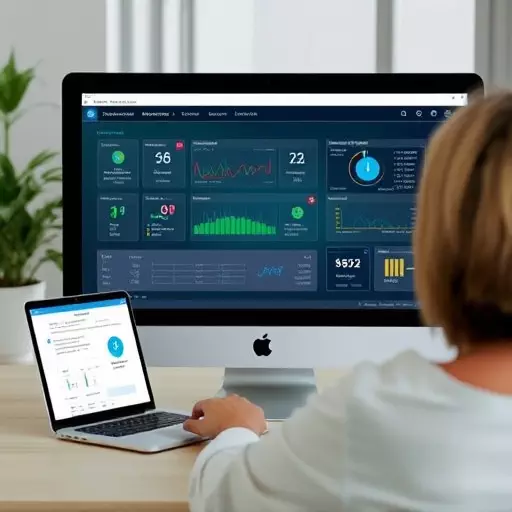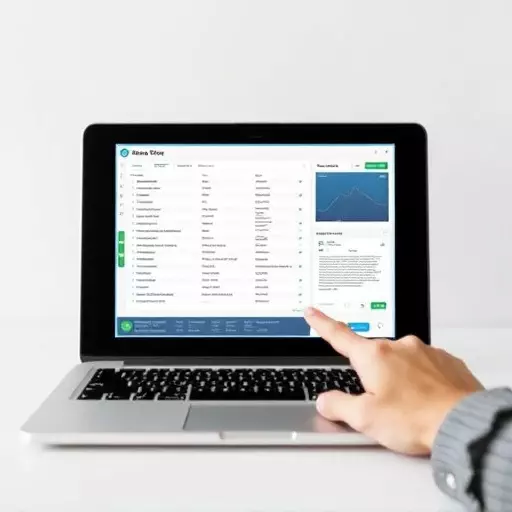Obesity, a growing epidemic, can be effectively addressed in Warren-Troy-Farmington Hills using innovative solutions like remote monitoring and GLP-1 (glucagon-like peptide-1) integrated virtual weight loss therapy platforms. These tools provide personalized programs, convenient access to care, and effective obesity reduction through regular check-ins and tailored adjustments. By leveraging GLP-1 data alongside wearable devices and apps, these platforms track diet, activity, and sleep, offering sustainable dietary and behavioral changes for improved health outcomes. This digital age approach revolutionizes weight loss, making it more accessible and successful for residents in the region.
In today’s digital era, virtual monitoring platforms emerge as powerful tools in the fight against obesity. As obesity rates rise in Warren-Troy-Farmington Hills and beyond, remote weight loss monitoring offers a convenient, accessible solution. This article delves into the growing need for innovative approaches to obesity management, exploring the role of GLP-1 in weight loss, evaluating popular virtual weight loss therapy platforms, and highlighting the numerous benefits of these digital tools. We’ll also guide you through key features to look for and share inspiring success stories from real users.
- Understanding Obesity and the Need for Remote Monitoring
- The Role of GLP-1 in Weight Loss Management
- Exploring Virtual Weight Loss Therapy Platforms
- Benefits of Remote Weight Loss Monitoring Tools
- Key Features to Consider in a Virtual Monitoring Platform
- Success Stories: Real-life Impact of Virtual Monitoring
- Future Trends in Digital Obesity Reduction Programs
Understanding Obesity and the Need for Remote Monitoring

Obesity is a complex health condition characterized by an excessive accumulation of body fat that can have severe consequences on overall well-being. It’s not merely about size but a significant risk factor for various chronic diseases, including type 2 diabetes, heart disease, and certain types of cancer. In recent years, the rise in obesity rates has prompted healthcare professionals to explore innovative solutions for effective weight management.
Remote monitoring is transforming traditional weight loss approaches, especially with the integration of virtual platforms offering GLP-1 (glucagon-like peptide-1) therapy, a natural hormone known for its appetite-reducing and blood sugar-regulating properties. These tools provide a convenient way to deliver personalized weight loss programs, enabling healthcare providers to offer effective treatment to patients in Warren-Troy-Farmington Hills and beyond. Virtual weight loss therapy platforms, coupled with remote monitoring, offer a promising approach to empowering individuals in their obesity reduction journeys while ensuring regular check-ins and adjustments tailored to each person’s unique needs.
The Role of GLP-1 in Weight Loss Management

Glucagon-like peptide-1 (GLP-1) plays a pivotal role in managing weight loss through its effects on appetite and metabolism. In the context of virtual monitoring platforms for obesity reduction plans, remote weight loss monitoring tools that incorporate GLP-1 data can offer significant advantages. These platforms often integrate with wearable devices and apps to track food intake, physical activity, and sleep patterns, while also providing personalized recommendations based on individual GLP-1 responses.
Virtual weight loss therapy platforms leverage this knowledge by delivering targeted interventions tailored to each user’s unique metabolic profile. By considering factors like GLP-1 levels, these platforms can suggest dietary adjustments, exercise routines, and behavioral strategies that are not only effective but also sustainable. This personalized approach enhances the success rates of obesity reduction programs, making them more accessible and impactful for users in Warren, Troy, and Farmington Hills seeking remote weight loss support.
Exploring Virtual Weight Loss Therapy Platforms

In today’s digital era, virtual weight loss therapy platforms have emerged as innovative solutions for obesity reduction plans. These platforms leverage remote weight loss monitoring tools to provide personalized care from the comfort of one’s home in Warren-Troy-Farmington Hills. Through web-based interfaces and mobile apps, users can access a range of features such as meal tracking, activity monitoring, and virtual counseling sessions with healthcare professionals. This approach not only facilitates better adherence to diet and exercise plans but also offers a more accessible and flexible alternative to traditional in-person therapy.
One promising aspect of these platforms is their ability to incorporate GLP-1 (Glucagon-Like Peptide-1) treatments, which have been clinically proven to aid in weight loss by reducing appetite and slowing digestion. By integrating GLP-1 in their programs, virtual weight loss therapy platforms can offer a comprehensive approach that targets both dietary habits and hormonal imbalances. This dual strategy not only enhances the effectiveness of obesity reduction plans but also promotes sustainable lifestyle changes for improved long-term health outcomes.
Benefits of Remote Weight Loss Monitoring Tools

Remote weight loss monitoring tools have emerged as a game-changer in the health and wellness industry, offering numerous benefits for those seeking to manage their obesity. One such innovative approach is the use of GLP-1 (Glucagon-Like Peptide-1) in Warren-Troy-Farmington Hills. This hormone, naturally produced by the body, plays a crucial role in regulating appetite and blood sugar levels, making it a powerful ally in weight loss journeys. Virtual weight loss therapy platforms equipped with GLP-1 monitoring can provide personalized insights and interventions.
By utilizing these remote tools, individuals can access real-time data on their progress, allowing for more informed decision-making. This includes tracking meal intake, physical activity levels, and body measurements, all from the comfort of their homes. Such platforms often incorporate automated reminders, educational resources, and virtual support groups, fostering a sense of accountability and community. This personalized approach ensures that each user receives tailored guidance, making weight loss more accessible and effective for those in Warren-Troy-Farmington Hills and beyond.
Key Features to Consider in a Virtual Monitoring Platform

When choosing a virtual monitoring platform for obesity reduction plans involving GLP-1 in Warren-Troy-Farmington Hills, remote weight loss monitoring tools should be at the forefront. These platforms serve as digital extensions of your healthcare team, enabling continuous tracking and real-time communication. Look for features like automated data sync from wearable devices and calorie/macro tracking to ensure comprehensive insights into diet and exercise habits.
Consider also platforms with built-in educational resources, personalized goals, and progress visualizations. Virtual weight loss therapy platforms that offer secure messaging or video consultations facilitate open dialogue with healthcare professionals, enhancing adherence and motivation. Additionally, mobile app compatibility ensures accessibility on the go, aligning perfectly with modern lifestyles in bustling communities like Warren-Troy-Farmington Hills.
Success Stories: Real-life Impact of Virtual Monitoring

In today’s digital era, virtual monitoring platforms have emerged as powerful tools in the fight against obesity, offering a unique and effective approach to weight loss. One notable success story involves GLP-1 (glucagon-like peptide-1) therapy combined with remote weight loss monitoring tools for patients in Warren, Troy, and Farmington Hills. This innovative strategy has shown remarkable results, helping individuals achieve significant weight reductions while maintaining a supportive and engaging environment.
The integration of virtual weight loss therapy platforms enables healthcare providers to remotely track patient progress, offer personalized guidance, and facilitate lifestyle interventions. Through regular check-ins, virtual counseling sessions, and access to educational resources, participants in these programs experience enhanced motivation and accountability. This holistic approach not only aids in weight management but also fosters long-term behavioral changes, making it a game-changer for those seeking sustainable obesity reduction.
Future Trends in Digital Obesity Reduction Programs

The future of obesity reduction plans is increasingly tied to digital innovation, with remote weight loss monitoring tools and virtual therapy platforms emerging as powerful allies in the fight against this global health concern. These technologies offer a more personalized and accessible approach to care, enabling healthcare professionals to provide guidance and support to patients in Warren-Troy-Farmington Hills and beyond. Through real-time data analysis, virtual platforms can track progress, adjust treatment plans, and facilitate GLP-1 (glucagon-like peptide-1) based interventions, a key hormone involved in weight management.
By harnessing the capabilities of digital tools, remote monitoring allows for continuous assessment without requiring frequent in-person visits. This trend towards virtualization is set to enhance patient engagement and adherence to obesity reduction programs. Virtual weight loss therapy platforms can incorporate interactive features like educational modules, community forums, and gamified challenges, fostering a supportive environment that encourages behavior change. Such advancements promise to make obesity treatment more effective and accessible, catering to diverse lifestyles and preferences in today’s digital landscape.
